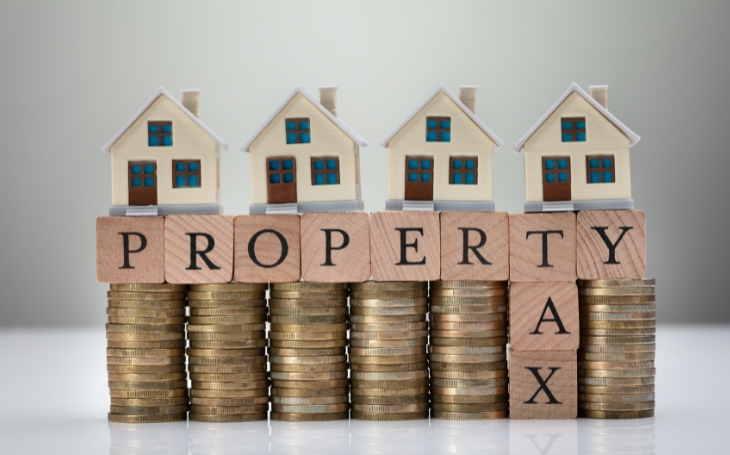
Improving Infrastructure for Better Real Estate Investments in The Gambia
- By, Admin
- 23 Jul, 2024
In recent years, The Gambia has emerged as a promising destination for real estate investments, attracting attention from local and international investors alike. The country's stunning natural beauty, vibrant culture, and strategic location offer immense potential for real estate development. However, to fully harness this potential and ensure sustainable growth, there is an urgent need to enhance the infrastructure. Infrastructure development is not just about building roads and bridges; it encompasses a wide array of elements including transportation networks, water supply, electricity, and telecommunications. Improving these critical areas will not only boost property values but also enhance the quality of life for residents and attract even more investment to the region. In this comprehensive article, we explore the current state of infrastructure in The Gambia, identify key areas for improvement, and highlight the benefits that come with robust infrastructure for the real estate sector.
The Importance of Infrastructure in Real Estate Development
Infrastructure plays a crucial role in real estate development. It encompasses a wide range of elements including roads, bridges, water supply, electricity, and telecommunications. These elements are the backbone of any thriving real estate market. Investors are more likely to invest in areas where infrastructure is robust and reliable, as it directly impacts property value, accessibility, and the overall quality of life.
Current State of Infrastructure in The Gambia
Transportation Networks
The Gambia's
transportation network is underdeveloped compared to global standards.
While there have been strides in improving major highways and roadways, many
rural areas remain difficult to access. This limitation hampers real estate
development as potential investors and residents seek ease of travel and connectivity.
Water Supply and Sanitation
Water supply and
sanitation are critical components of infrastructure. The Gambia faces
challenges in providing consistent and clean water to all regions. Investments
in modern water treatment facilities and expanded distribution networks are
essential to support new real estate developments and ensure a healthy living
environment for residents.
Electricity and Power Supply
Reliable
electricity is a fundamental requirement for modern living. The Gambia has been
working on expanding its power grid, but there are still frequent power outages
that can deter real estate investment. Increasing the capacity and reliability
of the power supply will make properties more attractive to investors and
residents alike.
Telecommunications and Internet Connectivity
In today’s
digital age, high-speed internet and robust telecommunications
infrastructure are non-negotiable for real estate development. The Gambia has
been making progress in this area, but there is still room for improvement.
Enhancing internet connectivity will not only attract businesses but also make
residential properties more appealing.
Key Areas for Infrastructure Improvement
Road and Transportation Infrastructure
Investing in road
infrastructure is paramount. Upgrading and expanding the road network,
particularly in rural areas, will improve accessibility and make remote
locations viable for real estate development. Additionally, enhancing public
transportation options can reduce traffic congestion and provide convenient
travel for residents.
Water and Sanitation Facilities
Developing modern
water and sanitation facilities is critical. This includes building new water
treatment plants, upgrading existing infrastructure, and expanding the reach of
water distribution networks. Proper sanitation systems will ensure a healthy
living environment and prevent waterborne diseases.
Energy Infrastructure
To attract more
real estate investments, The Gambia must improve its energy infrastructure.
This can be achieved through the development of renewable energy sources such
as solar and wind power, which are abundant in the region. Additionally,
upgrading the national grid to minimize power outages will increase investor
confidence.
Telecommunications and Digital Infrastructure
Improving
telecommunications and digital infrastructure is essential for modern real
estate developments. High-speed internet and reliable mobile networks are
critical for both residential and commercial properties. Investments in fiber
optic networks and 5G technology will significantly enhance connectivity and
attract tech-savvy investors.
Benefits of Improved Infrastructure for Real
Estate Investments
Increased Property Values
Enhanced
infrastructure leads to increased property values. When roads, utilities, and
services are reliable and efficient, properties become more desirable, and
their market value rises. This is a significant incentive for investors looking
for profitable opportunities.
Attracting Foreign Investment
A well-developed
infrastructure attracts foreign investment. Investors from around the world
seek stable and efficient environments to invest in. By improving
infrastructure, The Gambia can position itself as a prime destination for
international real estate investors.
Boosting Economic Growth
Infrastructure
development has a multiplier effect on economic growth. Improved
infrastructure leads to the creation of jobs, stimulates local economies, and
enhances the overall standard of living. This economic boost, in turn, fosters
a more vibrant real estate market.
Enhancing Quality of Life
Quality
infrastructure directly impacts the quality of life for residents. Reliable
utilities, efficient transportation, and modern amenities contribute to a
better living experience. This makes properties more attractive to both buyers
and renters, driving demand in the real estate market.
Government Initiatives and Policies
Strategic Planning and Investment
The Gambian
government has recognized the importance of infrastructure development and is
actively working on strategic plans to improve it. By partnering with
international organizations and attracting private investments, the government
aims to accelerate infrastructure projects.
Public-Private Partnerships (PPPs)
Public-Private
Partnerships (PPPs) are a crucial component of infrastructure development. By
collaborating with private sector entities, the government can leverage
additional resources and expertise to implement large-scale projects
efficiently and effectively.
Sustainable Development Goals (SDGs)
Aligning
infrastructure development with the Sustainable Development Goals (SDGs)
ensures long-term benefits. Sustainable infrastructure projects not only
support real estate investments but also promote environmental conservation and
social equity.
Case Studies: Successful Infrastructure
Projects
Banjul International Airport Expansion
The expansion of
Banjul International Airport is a prime example of successful infrastructure
development. By increasing capacity and modernizing facilities, the airport has
improved connectivity and boosted tourism, leading to increased demand for
nearby real estate.
Trans-Gambia Bridge
The construction
of the Trans-Gambia Bridge has significantly improved transportation across the
Gambia River. This project has enhanced trade and mobility, opening up new
areas for real estate development and attracting investment.
Conclusion
Improving
infrastructure is imperative for fostering a thriving real estate market
in The Gambia. By focusing on key areas such as transportation, water supply,
energy, and telecommunications, the country can attract more investors,
increase property values, and boost economic growth. Strategic planning and
partnerships will be essential in achieving these goals, ultimately creating a
better living environment for all Gambians.


